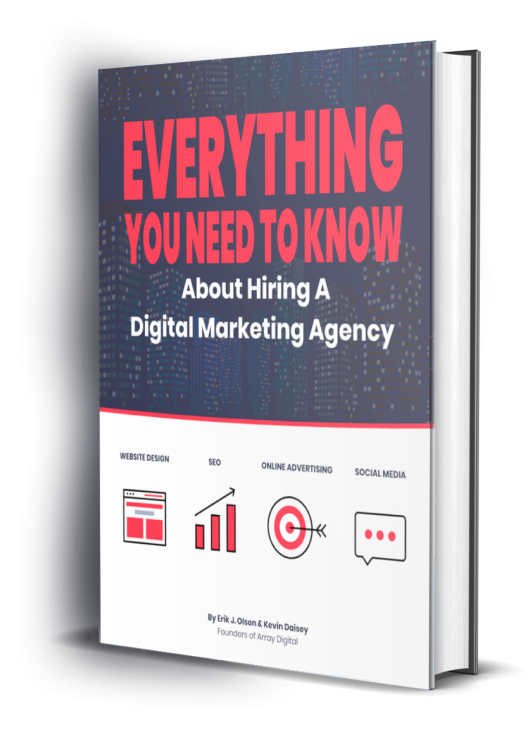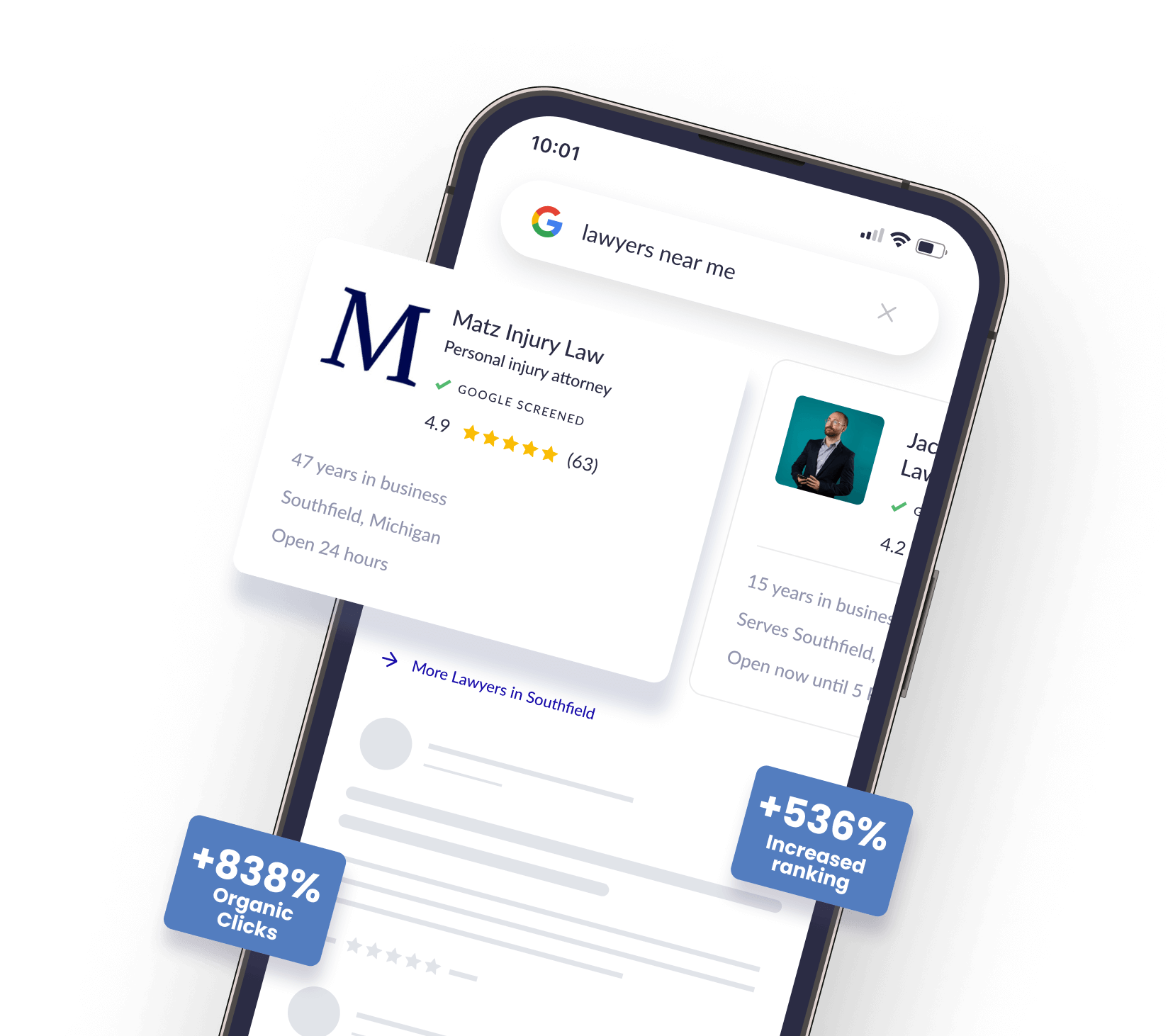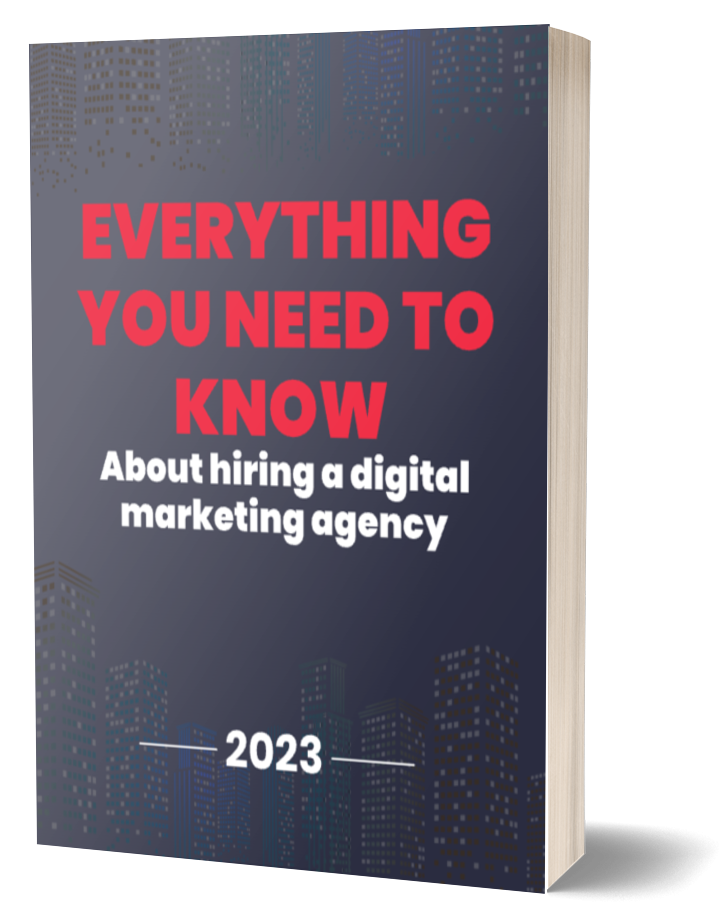
Does your money feel like you are wasting it because your firm is not receiving an increase in leads? If you let your budget hit its cap and there are no new clients or leads, the money spent on Google advertising might be better spent elsewhere. If your Google ads, however, are targeted and designed with a specific intent in mind, spending money and having a budget for PPC could work in your favor.
How Much Should Your Law Firm Spend on PPC?
Many factors play a role in how much you will spend to market your business using pay-per-click (PPC). Just like any other type of marketing, factors such as who your clients are, where you are located, and the competition play a role in what you’ll pay. Even the type of cases you take and your practice areas can play a role in how much you could spend on marketing online.
Your monthly budget may be higher in some geographical areas if there is plenty of competition in your practice area within the local market. At the same time, just like any small business, it is possible to stand out more when you specialize in a specific area and use your ad budget to focus on that specific area of service or expertise.
Typical Budget
It is typical for a law firm to allocate between 3 and 10 percent of its revenue to legal marketing. That should cover all aspects of your marketing, including your search engine optimization (SEO), PPC, and other ad spend, along with other aspects of digital marketing. To be clear, some firms only spend 2 percent. Then there are those that spend 18 percent.
A firm that needs a steady stream of new clients, especially in practice areas like personal injury, is likely to have a higher ad spend than those who are in a less competitive field such as energy law. In local areas where the competition is high, you may need to spend more on mass media advertising, rebuilding your landing page, and optimizing your overall online marketing to create a better reach.
Also, consider your firm’s growth rate potential. Where are you right now? For example, you could be a new law firm that is unproven or otherwise unknown in the community. It is going to take more money and work to increase your brand awareness. You have a higher potential to grow because you are new and at the bottom rung of the ladder.
By comparison, a law firm that already has a strong presence and is well known as a thought leader in the local legal industry may not need to spend as much because brand recognition is already present. How much potential is there for you to grow? This depends on brand awareness, but also things like your local market’s demand.
How Much Should You Spend to Market a New Law Firm vs. An Established One?
When it comes to things like search campaigns and paid search, brand awareness is a big factor in terms of how much you need to invest. Business owners need to be realistic when coming into the online advertising and online marketing game. Where they are right now is going to influence how much they need to spend.
Having an established brand name will help you to spend less. Consider the average eCommerce retailer. If you are in the market to buy a product, and you know the brand that you want to use, you know how to find them online. You type in the website or do a simple Google search. This larger company can have a small budget because people are already familiar with its reputation. By contrast, an unknown brand or company needs to spend more to get in front of the competition.
It will require more money and time to get your brand in front of people if it is not already established. It makes sense, but the key is not to become too overwhelmed by a dollar figure. There is ample flexibility built into marketing and advertising budgets when you are working with the right team.
For those in the personal injury, family law, or workers’ compensation areas, it is typical to spend between 5 and 12 percent of gross revenue on marketing. If you need to reach the masses, you will need to spend in this range to do so.
As a new law firm, you may need to spend closer to 10 to 15 percent of gross revenue. An established practice with a recognized brand may need to spend 2 to 5 percent in comparison.
Why Does Monitoring the Competition Matter for PPC?
To create your own successful Google Ads campaigns, you will need to consider not just your budget but also the competition. In your bid strategy, you will need to factor in a competitor analysis. This will help you to determine what your competitors are spending on their Google Ads campaigns and search ads.
Running a competitor analysis gives you an idea of how well your competitors are ranking. You can then use this information to get an estimate of their income as well as their budget for PPC. This is something all business owners need to do – they need to know what their competition is doing to adjust their own actions to get better results.
With this information, you (or your team of PPC pros) will be able to set your own budget for your law firm’s paid search marketing.
There are quite a few reports and details needed to create an effective ad strategy so you can hone your PPC campaign to achieve your desired outcome. That includes having information such as conversion rates, daily budget, impression share, and other metrics. To gather all of the data needed, you need to have appropriate tools. This can take some time and money to research and use properly.
The good news is you do not have to buy all of the right tools to do this. Rather, Array Digital does this for you. Our data acquisition tools allow you to have a clear level of insight into what you should be investing based on the competition (and other factors). We are happy to share with you any data that you would like to see to show what you are investing in and why.
Keep in mind that Google changed the name of its advertising platform from Google AdWords to Google Ads. You may notice some resources refer to topics like AdWords budget or an AdWords campaign. Those equally translate into the Google Ads terms.
How Can I Develop an Effective Google Ads Bidding Strategy?
If you are not sure what Google Ads is or how it works, that makes it even more of a challenge to get started. There are core things you need to know to create an ad-building strategy.
One place to start is with your keywords. A keyword planner is a part of writing ad copy. Some words you may use, like “car accident attorney,” are going to be very expensive for Google Ads because there is such a high level of competition. The more competition there is for search terms, the more you have to spend to get to use that keyword.
It’s always important to know what searchers are looking for when searching online. Yet, search volume isn’t everything. You also have to find a way to balance your budget. This takes close monitoring of Google Ads to spot trends. This allows you to then learn where to add and cut costs in certain ad groups. The better you can be at creating effective ad copy that uses terms that are relevant to searchers but still competitively priced, the better ROI you get from any ad campaign.
Let’s break down a few key areas that play a big role in this process. Here are some components of the process.
Ad Groups
An ad group has one or more ads within it that have similar targets. You’ll set a bid to use when an ad group’s keywords trigger the placement of the ad. The bid is the price you will pay. This bid is also known as the cost-per-click (CPC) bid. It is possible to organize ads by a specific theme, such as the services you wish to advertise. For a lawyer, this could be the various services you offer within categories.
Selecting Keywords
Keywords have to be selected with ample care and attention to run a successful PPC ad campaign. Typically, it is essential not to be too broad. The more non-specific a keyword is, like “attorney,” the higher the cost-per-click will be. That’s costing you money and does not always improve results.
Instead, consider the benefit of using long-tail keywords. These are keywords that are more specific but still share the same theme as your initial primary keyword. Think of long-tail keywords as branches on a tree with the trunk of the tree being the broad keyword. They are better able to draw in your specific target audience while decreasing competition.
It’s also essential to consider alternative keywords to those you prefer. That could help to reduce the CPC and provide you with better results.
Negative Keywords
You may also want to consider negative keywords. For example, when these keywords appear in the search chain, your ad is not likely to appear at that point. That means you are less likely to lose money on keywords that searchers are inputting that really have nothing to do with your goals. Yes, there is a lot of keyword research that goes into this process, including a solid understanding of search queries and user intent. It can be quite a bit to learn to ensure you are spending wisely.
Landing Pages
Another factor to keep in mind when working on your Google Ads budget and campaigns is your landing page. This is the page on your website where people come to when they visit. It is a very common mistake for people to make to run their PPC campaign without having any insight into their landing pages.
At the very least, each ad group should have its own landing page(s) on your website. Many businesses go one step further in having landing pages for each specific ad. In any situation, the goal is to ensure that the landing page serves the ad. This is what helps drive conversions as well.
The right keywords matter. Landing pages matter. In one study completed by Wordstream, it was found that 1 in 4 Google Ad accounts that spent less were using a single landing page for all of their ads. The top-spending accounts were using multiple landing pages.
What Should You Do If You Are Hitting Daily Budget Caps?
Your ad budget will be a big factor in any type of marketing you are doing. Once your Google Ads account budget is tapped, which is called hitting the daily budget cap that you set, the next step is to do one of two things.
You could increase the amount of money you are willing to put into the budget. If you have a small budget and are targeting highly competitive words, this will be necessary. If you cannot do that right now, then you need to find an alternative.
That alternative is typically to lower the bids. You could also put a hold on lower-performing campaigns you are running to focus on those that are creating the best results. You could also use ad scheduling as a solution.
Lowering your bids could mean getting more clicks and less expensive clicks into your website for your budget. If you can increase your budget down the road, such as after you have picked up business or allocated your budget differently, then pause some of your campaigns instead. Pause those that include a broad or phrase match campaign as these tend not to offer the best long-term results.
It helps to have a significant amount of experience in this process so that you know you are getting the best results. With the help of a team, you’ll have more insight into what you should spend based on factors such as the cost per acquisition (CPA) as well as the specific keyword phrases that are going to produce results for your law firm.
How to Compete in Google Ads with a Lower Budget
What does it take to compete? How do you develop a solid strategy that helps you achieve your very best outcome for every dollar you put into PPC? Here are some core components that matter:
- Target longtail keywords. Skip the expensive common keywords and ads. Go for those that more directly reflect what your target audience is typing into Google.
- Increase your quality score. Make your small budget go further by making sure your ads are the very best they can be. Google assesses the ad’s bid amount, landing page content, and keyword inclusion to give it a score. Aim for a 10 to rank better on the search engine results page (SERP) and to convert more website visitors.
- Optimize your landing pages. Be sure that your landing pages reflect the ads or ad groups, at the very least, properly. Ensure that these pages are optimized and rank well on their own.
- Don’t spread yourself too thin. If you have too many keywords in a single ad group, you cannot write an ad that meets each one of those search criteria. Too much of a good thing can cost you results.
- Create a well-defined structure. It is always a good idea to have a plan for where you are going. That means taking the time to establish ad groups that truly reflect your most likely client. It also means considering your targeted location.
Also, remember that your law firm marketing budget does not always have to be exceedingly high. Just throwing more money at your budget is not always going to lead to a better outcome in ROI. Instead, work with a digital marketing agency that can carefully support your efforts to build an effective ad campaign that makes solid use of any budget.
Don’t Just Pay for Clicks That Bounce. Pay for Worthwhile Conversions
Anyone can run Google Ads. Array Digital understands what is needed to increase click-through rates (CTR) astronomically. Just because someone clicks on an ad does not mean that they will become a paying customer. They need to be converted through compelling language within the ad. The key takeaway here, then, is that you need a digital marketing firm that creates ad copy that properly represents your law firm but also utilizes the best optimization methods available. The result is a better return on your investment.
Contact Array Digital today to request a free consultation. Call us at 757-333-3021 or complete the online contact form to speak with our experienced digital marketing experts. Let’s improve your outcome today.

Everything you need to know about hiring a digital marketing agency:
- The four pillars of digital marketing
- Digital marketing options and costs
- The pitfalls to avoid
- What to expect when working with an agency
- The qualities to look for in a digital marketing agency

Extraordinary Results
-
“Erik and the Array Digital team are top notch in the digital marketing spaces, particularly for SEO. Their understanding of Google, the algorithms, and the work involved to get websites ranking on the first page is unparalleled. Thank you Erik!!”
Andrew ZihmerZihmer Law Firm -
“I had a chance to consult with Kevin Daisey for my law firm’s marketing needs. He is knowledgeable, kind, and helpful. He provided me with a great marketing analysis. He also invited me to their podcast as a guest speaker. Thank you Array Digital!”
Merve KatiZMK Law -
“The legal profession needs more architects and designers…folks who are thinking about the future of the profession and who are assembling a tribe of like minded lawyer leaders. Erik and his team are certainly ‘that’.”
Ben GlassBen Glass Law & Great Legal Marketing







